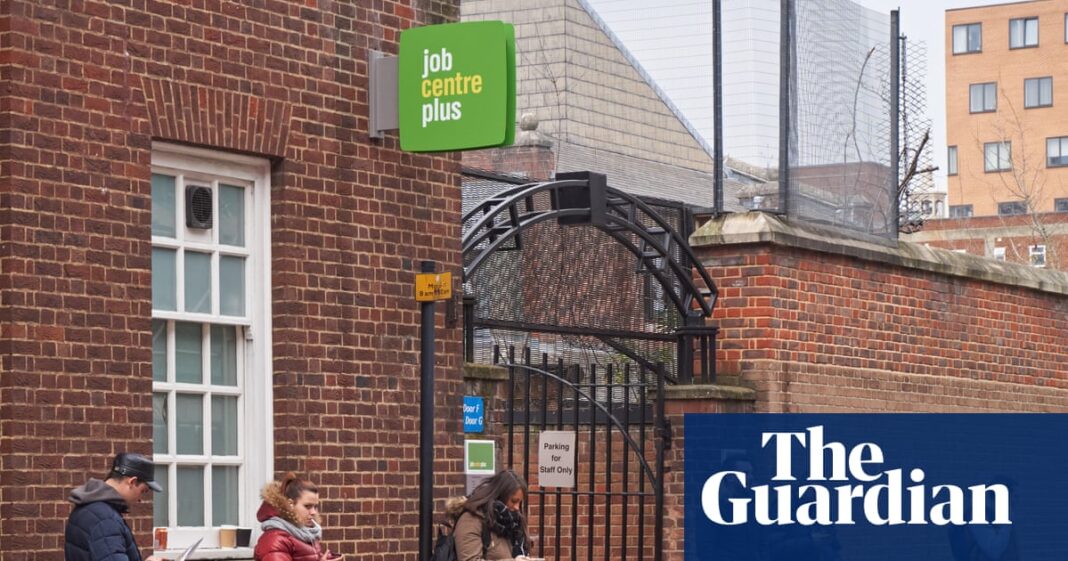Keir Starmer has been warned that Britain’s youth are in danger of becoming a “lost generation” on his watch as it emerged almost half of all jobs shed since Labour came to power are among the under-25s.
With the government under fire before the autumn budget, Guardian analysis shows the dramatic leap in UK unemployment to the highest levels since the Covid pandemic is being fuelled by a youth jobs crisis.
As many as 46% of the 170,000 jobs lost from company payrolls since June last year are from those under the age of 25 – the equivalent of more than 150 jobs lost per day.
David Blunkett, the former Labour education secretary, said that while the government was taking action there was a danger an entire generation of young people would be let down.
“I think we’ve got to get our act together. It’s a lost generation and if we don’t do something now the consequences economically, societally and personally will be devastating,” he said.
Blunkett, a leading figure in Tony Blair’s New Labour government, urged Starmer to consider launching a revamped version of the 1990s New Deal for young people launched early in Blair’s first term in office.
“If we could go back and learn from it, and apply it to the modern era – where obviously there’s a great deal more challenge – that would be good.”
Youth unemployment has increased from 14.8% a year ago to 15.3%, the highest level outside the Covid pandemic since 2015, and more than three times the headline jobless rate for people over the age of 16. Long-term youth joblessness is also at a decade high.
While under-25s account for roughly a tenth of the overall UK workforce, the Guardian’s analysis of HMRC jobs data published this week shows younger adults have borne the brunt of job losses in the past year.
The figures released by the Office for National Statistics show the number of employees under the age of 25 on company payrolls in November was down by 77,000 from the level in June 2024, before Starmer’s election landslide. Most of the decline was fuelled by a drop in employees under the age of 18.
The latest monthly figures show a recovery in November from October of about 37,000 under-25s on company payrolls, but the total in work is still down from June last year.
Labour has been blamed for fuelling Britain’s jobs market slowdown after the chancellor, Rachel Reeves, targeted employers with a £25bn increase in their national insurance contributions in last year’s budget.
Seized on by the government’s critics, the Bank of England has warned the tax increase has sapped hiring mostly among employers in hospitality and retail – typically where young people find a first step into the world of work.
“Any lost generation is on the chancellor,” said Mel Stride, the shadow chancellor. “You don’t get more young people into work by punishing the very businesses that hire them.”
Daisy Cooper, the Liberal Democrat Treasury spokesperson, called on Reeves to reverse the tax rise at the 26 November budget. “The youth jobs crisis is a ticking timebomb but some obvious solutions are staring the chancellor in the face,” she said.
It comes as ministers brace for an update on Thursday, which risks showing the number of young people who are not in education, employment or training (Neet) has climbed above 1 million for the first time in a decade.
Amid mounting concern at the heart of government, Pat McFadden, the work and pensions secretary, this week appointed Alan Milburn, the former Blair-era health secretary, to lead an independent review into rising youth worklessness.
Reeves is expected to announce funding in this month’s budget for a “youth guarantee” to offer guaranteed paid work to every eligible young person who has been on universal credit for 18 months without earning or learning.
The chancellor pledged in her party conference speech in Liverpool earlier this autumn that Labour would aim for “the abolition of long-term youth unemployment”. However, official figures this week show the number of 18- to 24-year-olds who have been unemployed for longer than 12 months has surged to 137,000, the highest level in a decade.
Ben Harrison, the director of the Work Foundation thinktank, said the government needed to expand its plan to support more young adults between the ages of 18 and 24.
“If you want to see a tangible difference made in time for the next election, more investment and support is needed,” he said.
A government spokesperson said Milburn’s review would help to tackle the key barriers behind rising youth unemployment. “It is unacceptable that 1 million young people are not in education, employment or training,” the spokesperson said.
“We are delivering opportunities to young people across the country, from the expansion of Youth Hubs to our Youth Guarantee to ensure the chance to earn or learn is available to all.”


